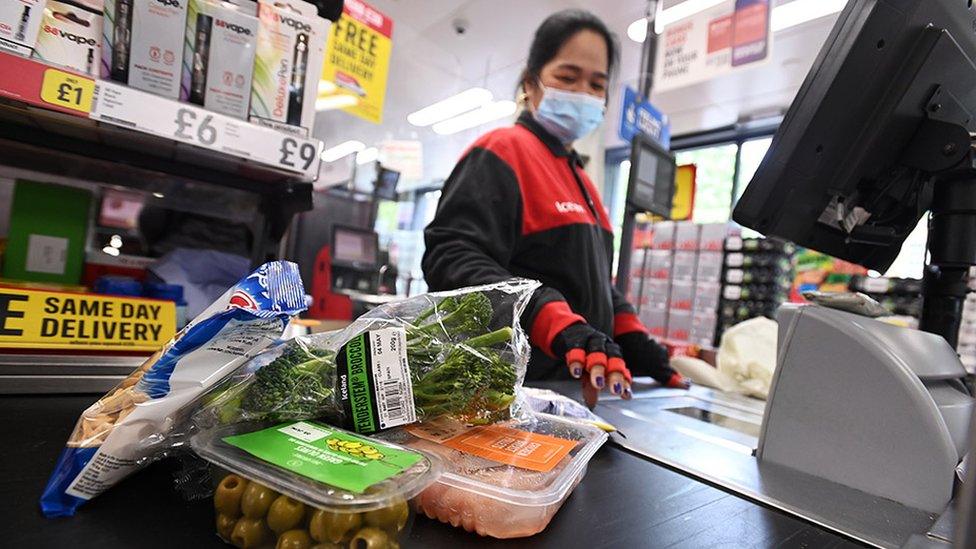Strikes and cost of living fears hit Scotland's high street footfall
- Published

Rail strikes and concern about the cost of living kept shoppers away from Scotland's high streets last month, according to a report by retailers.
Figures from the Scottish Retail Consortium (SRC) suggested footfall rose slightly between May and June.
However, they remained more than 15% below pre-pandemic levels in June.
SRC said the figures showed footfall in Scotland fared worse than in the rest of the UK for a second month in a row.
Last month, rail services in Scotland were disrupted by three 24-hour national strikes as part of a UK-wide dispute between the RMT union and Network Rail.
The now-nationalised ScotRail is also still operating a reduced timetable while it continues to train new drivers following a separate dispute involving drivers who are members of Aslef.
'Rollercoaster ride'
Andy Sumpter, a consultant for retail analytics firm Sensormatic Solutions which compiled Scotland's footfall data, said June "delivered a rollercoaster ride" for the high street.
He added: "The highs of the 'Jubilee Jump' in footfall where retailers benefited from the beginning of the month was, in part, derailed by the rail strikes as some shoppers stayed at home to avoid travel disruption.
"This mixed bag of footfall performance will do little to allay retailers' concerns as the cost of living and inflationary pressures continue to weigh heavy in the public consciousness."
SRC said that while the June figures were disappointing, Edinburgh and Glasgow both outperformed the national average. Footfall in Glasgow was down by 12.6% compared with 2019, while Edinburgh was down by 9.6%.
SRC head of policy Ewan MacDonald-Russell said: "Whilst there was a modest improvement this month, the brutal reality is high street retailers are consistently seeing 15% fewer customers than before Covid struck Scotland.
"With inflation rising to 9% last month, the pressure on discretionary spending is only likely to grow."
Related topics
- Published24 June 2022

- Published22 June 2022
